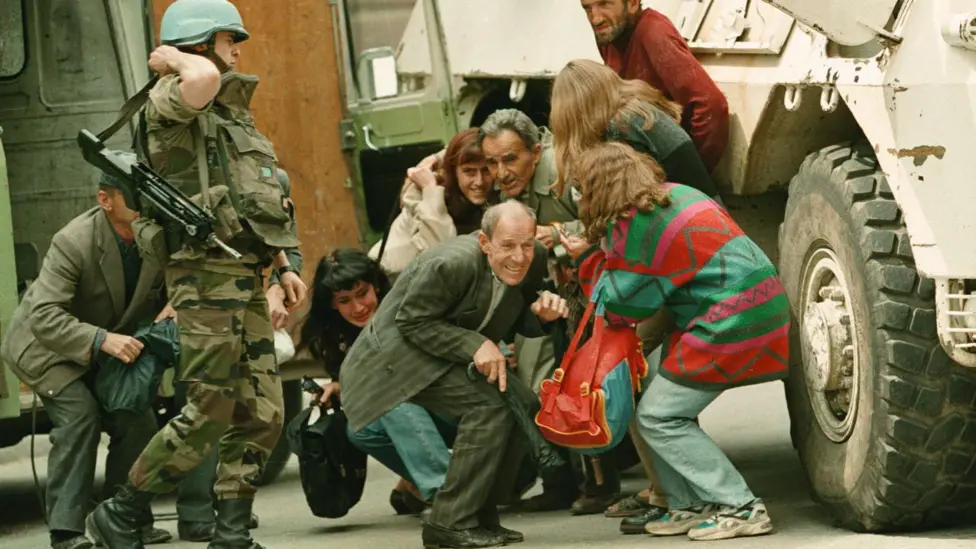News
Italy Launches Probe into Claims Tourists Paid to Hunt Civilians During Bosnian War

Italian prosecutors have opened a criminal investigation into shocking allegations that Italian citizens traveled to Bosnia-Herzegovina in the early 1990s to take part in so-called “sniper safaris,” where wealthy foreigners allegedly paid to shoot at civilians trapped in the besieged city of Sarajevo.
The inquiry, led by Milan’s counterterrorism prosecutor Alessandro Gobbis, follows a formal complaint filed by journalist and author Ezio Gavazzeni, who says his investigation uncovered evidence that individuals from Italy and other countries paid large sums to take part in what he described as a “manhunt.” According to his report, participants fired on defenseless civilians from Serb-controlled positions overlooking Sarajevo.
Gavazzeni claims that different prices were charged depending on the target men, women, or children. His complaint includes testimony from a Bosnian military intelligence officer who said local forces discovered the existence of the “safaris” in late 1993 and reported it to Italy’s military intelligence agency, Sismi, in early 1994. The officer said that Sismi later confirmed the existence of the trips, which allegedly departed from the northern Italian city of Trieste and ended in the hills above Sarajevo. Within months of the report, the practice reportedly stopped.
More than 11,000 people died during the four-year siege of Sarajevo, one of the bloodiest chapters of the Bosnian War. The city was encircled by Serb forces who bombarded it daily, killing civilians as they tried to live through the conflict.
The Milan investigation was launched after Gavazzeni submitted a 17-page dossier earlier this year. His evidence reportedly includes military communications and a report from former Sarajevo mayor Benjamina Karic. He says the investigation aims to identify any surviving witnesses or participants.
Speaking to La Repubblica, Gavazzeni said the number of those involved could be far higher than previously believed, possibly more than a hundred. “Many of them were very wealthy people with a fascination for weapons,” he said, adding that some may have paid the equivalent of €100,000 to take part. “Their actions represent the indifference of evil.”
The journalist first encountered the story decades ago when Corriere della Sera published unverified reports about foreigners joining the war for sport. He returned to the subject after seeing the 2022 documentary Sarajevo Safari by Slovenian filmmaker Miran Zupanic, which claimed that participants came from several countries, including Italy, Russia, and the United States.
Gavazzeni’s renewed investigation brought forward witnesses who say they saw foreign visitors at front-line positions. Similar claims have circulated for years but never reached the stage of formal legal inquiry until now.
Italian prosecutors are now reviewing documents and have begun identifying witnesses who could help verify the allegations. While a separate investigation in Bosnia appears to have stalled, Milan’s probe could mark the first time any legal action is taken over the alleged sniper safaris.
The case has revived painful memories of the war and raised questions about the moral collapse that can occur in times of conflict. As Gavazzeni put it, “Some came to Bosnia not to fight or to help, but to kill for pleasure, a reminder of how easily humanity can lose its way.”














